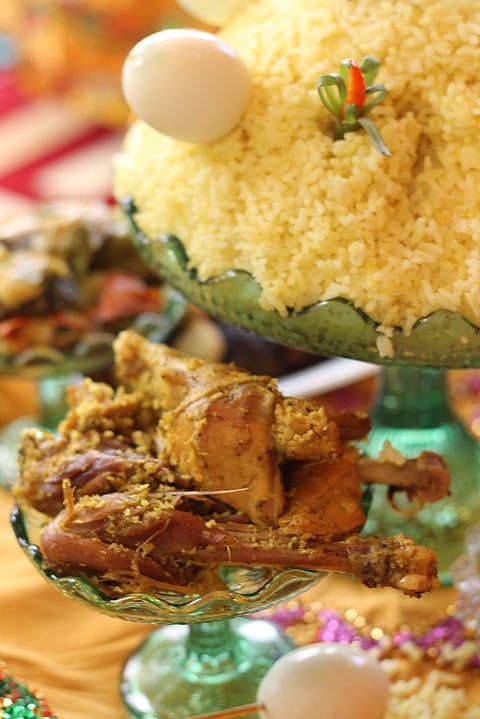
- NEWS
- the EDIT
- COMMENTARY
- BUSINESS
- LIFE
- SHOW
- ACTION
- GLOBAL GOALS
- SNAPS
- DYARYO TIRADA
- MORE

The Filipino youth play a pivotal role in preserving the Filipino culinary heritage, particularly the traditional dishes and cooking techniques.
This is what the national government underscores for this year's Filipino Food Month (FFM), with the theme “Kalutong Filipino, Lakas ng Kabataang Makabago.”
Executives from the National Commission on Culture and the Arts (NCCA), Department of Agriculture (DA), Department of Tourism (DOT), and Philippine Culinary Heritage Movement (PHCM) gathered on Wednesday for a press conference at the Casa Buenas, Newport World Resorts, before the month-long celebration kick-off set for April 5 at the Clark Parade Grounds, Mabalacat, in Pampanga.
According to DA Gender Equality and Social Inclusion program director Annray Villota Rivera, the Filipino youth are a significant component in ensuring the longevity of Filipino culinary heritage to be passed on to the next generation.
"From the very beginning, Filipino Food Month was created to continue the Filipino culture, heritage, and tradition to future generations because, like earlier, there were questions asked regarding examples of our local salt, which we are not very familiar with. So this Filipino Food Month under the Executive Order of the President aims to continue for the next generation,” she told DAILY TRIBUNE.
Rivera went on to encourage the youth to venture into the field of agriculture, especially now that farmers are getting older.
“We have our Young Farmers Challenge, where we financially support the winning beneficiaries in their agriculture-based enterprises. We're supporting them and assisting them in mainstreaming their products,” she said.
Moreover, the DA official urged the public to patronize Filipino products now more than ever, as various foreign cuisines are very popular in the country.
“Although Filipino cuisine has not been overshadowed until now, even abroad, our adobo and sinigang are known. The biggest challenge is for our Filipino customers to be more supportive, and even in other countries, we could promote the Filipino dishes more so that they are not overshadowed,” she said.
“That's what we want—not only to eat Filipino dishes at home but also at our restaurants,” she added.
According to PCHM, the annual culinary festivity is not just a celebration of delicious dishes and delectable flavors but also an instrument for preserving our culinary heritage and gastronomy.
“Our food tells the story of who we are as people, our struggles, strives, and aspirations. It is a living expression of our creativity, resilience, and ingenuity,” said PCHM president Jose Antonio Miguel Melchor.
“Preserving our culinary heritage goes beyond simply enjoying our favorite dishes; it requires a commitment to safeguarding traditional recipes, supporting local producers, our farmers, and our fisherfolk, and promoting sustainable practices in the food industry. It all means passing on our knowledge and skills to the next generation so that they can continue to celebrate and innovate within our rich culinary tradition,” he added.
Under Presidential Proclamation No. 469 inked in 2018, the month of April every year is declared “Buwan ng Kalutong Filipino” or "Filipino Food Month,” where the NCCA and DA shall lead the celebration.
“The FFM 2024 observance aims to ensure the appreciation, preservation, and transmission of Filipino culinary tradition as an established art form to future generations while celebrating and uniting regional diversity as a collective Filipino identity and supporting the industries, farmers, and agricultural communities,” said the NCCA.
Among this year's celebration flagship activities are Philippine Eatsperience from 3 April in Intramuros and Rizal Park; KainCon 2024: Filipino Food Conference from 15 to 17 April at the Far Eastern University Manila; Hapag ng Pamana Philippine Food Festival from 13 to 15 April in Bonago, Tawi-Tawil; from 22 to 23 April in Legazpi, Albay; and from 28 to 30 April in San Jose Buenavista, Antique, where the FFM 2024 culminating program will also be held on 30 April 2024.
